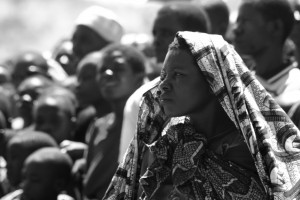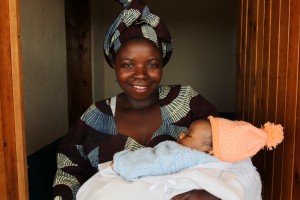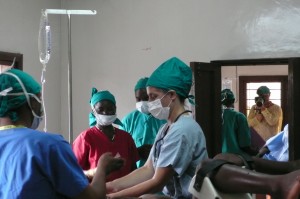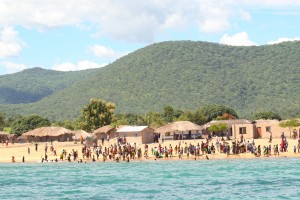LTFHC Founder and CEO Dr. Amy Lehman was interviewed by the Huffington Post while at Ideacity in Toronto last month. Read more on her thoughts about “magic bullet” solutions and her general approach to international aid at HuffPo Canada.
LTFHC Founder and CEO Dr. Amy Lehman was interviewed by the Huffington Post while at Ideacity in Toronto last month. Read more on her thoughts about “magic bullet” solutions and her general approach to international aid at HuffPo Canada.
Responding to insecurity and crises is built into our organizational DNA. Read more about the Burundi crisis and how we’re responding on the Wilson Center Environmental Change and Security Program’s Blog
Writer Henry Eliot spent some time with our programmatic team during the Hivos Contraceptive Outreach in May. Read his account of the experience featured in Newsweek Europe >>
LTFHC Founder & CEO Dr. Amy Lehman was a featured speaker at this year’s Ideacity Conference, “Canada’s Premier Meeting of the Minds”. Watch her speak on why aid and development work is so hard, bed net misuse and unintended consequences, and other hard questions. Don’t miss this great talk!
Burundi is in a fragile and crucial position, not only as a sovereign state, but for stability in the region as a whole. Violence connected to electoral activities spans beyond Burundi, spilling over into neighboring countries – the consequences of which would be devastating from a transboundary perspective. This is particularly important in the Ruzizi Plain in the border region of Burundi and the Democratic Republic of the Congo (DRC), as well as the southern part of South Kivu, since Uvira looks to Bujumbura as a main driver of stability (security-related and economic). Pressures on Burundi to reach a peaceful solution are now enormous, and how the international community as well as regional actors engage will be crucial to long term stability.
Background
Burundi is located on the northeast shores of Lake Tanganyika, bordered by Rwanda to the north, Tanzania to the east and south, and the DRC to the west. Burundi’s over 10 million citizens have lived in relative peace since the end of civil war in 2005, and the country has been considered a success in its ability to diffuse ethnic tension and share political power. However, Burundi’s position as one of the poorest nations in the world (ranked 180th out of 187 countries in the 2014 Human Development Index) as well as its central position in complex regional politics leaves it extremely vulnerable to instability. As a result, there are serious fears about what will result from the current political crisis.
What has happened so far?
Where things stand now
UNHCR has reported that a total of 112,000 refugees have fled to the DRC, Rwanda, and Tanzania to date. It has come to our attention that Burundi police and border guards are using force to prevent Burundians from leaving their country as refugees, in violation of international law. As a consequence, only small groups of refugees are able to get through, while there is a buildup of people stuck on the Burundi side of the border. Those able to get out arrive at Kagunga in small groups of 10-20 people daily. The cut-off number to trigger UNHCR’s coordinated response is 60 persons at one time– we consequently see a material gap in the UN’s response to these refugees, whose needs are not being met, with some on the verge of starving.
Over the past three weeks, we have supported international organizations like the World Health Organization and Plan International, as well as other NGOs, in traveling to and from Kagunga. We have also helped to bridge the local information gap and are currently hosting Médecins Sans Frontières Switzerland on our compound in Kigoma.
We have monitored this political devolution for the past 18 months, and in fact prepared a special report in March for distribution to stakeholders regarding the impending Burundian elections (if you are interested in reading the special report, please email info@floatingclinic.org). During the drafting of this paper, we heard a common viewpoint from Burundian expats, civil society organizations, and government officials posted in Washington DC that Burundians are tired of war and therefore will put more effort into finding resolutions and compromise, rather than fight. However, that sentiment could evaporate if definitive political and humanitarian solutions are not found.
We will continue to have eyes and ears on the ground as the situation evolves. Key points to track will be the return to political dialogue and how (and whether) the East African Community and African Union will engage positively, when the United States will appoint a new Special Envoy for the Great Lakes Region and the DRC to replace Russ Feingold (this vacancy is deeply damaging at a time like this), as well as Pierre Nkurunziza’s next steps: whether he might invoke ethnicity, and/or be forced to stand down if the pressure becomes too great for him.
 In the Lake Tanganyika Basin, reproductive health care is nearly non-existent. Contraceptive and prenatal care is inaccessible, childbearing often begins in teen years, and extreme poverty is the norm. As a result, maternal-fetal death rates are extremely high (under-five childhood death rate is near 20-25 percent in certain areas in the basin), as is fistula formation in women and girls who survive obstructed labor. The LTFHC/WAVE is committed to addressing high birthrate in the region through accessible contraception, not only as a means of empowering local women but also to save lives and prevent disease.
In the Lake Tanganyika Basin, reproductive health care is nearly non-existent. Contraceptive and prenatal care is inaccessible, childbearing often begins in teen years, and extreme poverty is the norm. As a result, maternal-fetal death rates are extremely high (under-five childhood death rate is near 20-25 percent in certain areas in the basin), as is fistula formation in women and girls who survive obstructed labor. The LTFHC/WAVE is committed to addressing high birthrate in the region through accessible contraception, not only as a means of empowering local women but also to save lives and prevent disease.
As such, the LTFHC/WAVE will conduct a comprehensive contraceptive project, funded by Hivos International, in Rukwa, Tanzania, that will include the following:
Through this outreach we aim to increase community awareness of contraceptive methods, increase male partner knowledge and involvement in contraceptive decision-making, build capacity in terms of health care workers skilled in contraception provision (with a particular focus on the longest-lasting, most reliable methods), and improve long term availability of contraceptives.
 We are particularly grateful to DKT Tanzania for their assistance in sourcing medical supplies at a discounted rate.
We are particularly grateful to DKT Tanzania for their assistance in sourcing medical supplies at a discounted rate.
This outreach will begin on May 23rd with a community “kick off” festival. Organized in cooperation with Femina HIP (a Tanzanian organization that promotes sexual health and wellness for young people through the use of multimedia) and community health care workers, the festival will feature a local theater group performing plays to help dispel common myths about contraception. Femina HIP will serve as the “master of ceremonies” to maximize community involvement and spread the word about the outreach during the festival.
Stay tuned here and on social media (Facebook, Twitter) for updates!
 The Tanzanian newspaper The Guardian recently published two stories featuring the LTFHC. Check them out!
The Tanzanian newspaper The Guardian recently published two stories featuring the LTFHC. Check them out!
*Please note, quote in the article should read: “Hundreds OF MILLIONS of people on earth live in water-based communities and the fact is, systems are just not designed for them.”
 In April, LTFHC/WAVE Founder and CEO Dr. Amy Lehman traveled to Singapore to represent our work at the Chicago Booth School of Business’s celebration of 15 years in Asia. Amy delivered the keynote address at the event, as well as an event for CFA discussing corporate risk mitigation.
In April, LTFHC/WAVE Founder and CEO Dr. Amy Lehman traveled to Singapore to represent our work at the Chicago Booth School of Business’s celebration of 15 years in Asia. Amy delivered the keynote address at the event, as well as an event for CFA discussing corporate risk mitigation.
Amy also traveled to Hong Kong to share our work. While there, she was interviewed by local magazine, Post. Read the interview here!
 We are pleased to share with you the executive summary of our forthcoming white paper, “Water-based Health Care: Have We Missed the Boat?”
We are pleased to share with you the executive summary of our forthcoming white paper, “Water-based Health Care: Have We Missed the Boat?”
Our purpose in publishing this paper is to introduce the concept of “water-based communities” and the unique interventions they require. Many do not realize that 40% of the world’s population resides within 100 kilometers of a coastline, with inland waterways containing some of the world’s most vulnerable populations. In doing so, we hope to reset the way the humanitarian and development communities view traditional health care delivery systems with respect to these communities, and to introduce a more water-centric, locally connected, and sustainable model.
We look through the lens of the Lake Tanganyika Basin to highlight the challenges water-based communities face, and how a redesigned health system using our proposed principles could positively impact water-centric populations all over the world.
Our concept of a regional hospital ship is the organizing principle to create a functional health care system in the Lake Tanganyika Basin. The full paper, due out later this year, describes our systems building approach using a regional hospital ship as a method of transport and supply chain access, and as a culturally appropriate, patient-centric, water-based facility to meet the needs of water-based communities.
We appreciate your continued support as we bring new ways of working, new thinking, and new energy to this neglected region.
As part of our ongoing work in the Lake Tanganyika Basin, we were so glad to serve as a resource to journalist Jeffrey Gettleman in preparation of his article, “Meant to Keep Malaria Out, Mosquito Nets Are Used to Haul Fish In,” featured in The New York Times. Anticipating its release, our team has been in active contact with many of the foundations, businesses, and multi-lateral organizations cited in this piece. Given the incredible value – and thus importance – of bed nets as a tool in reducing malaria incidence, but also recognizing the tens of millions of Africans that rely on fish for survival, the LTFHC views this as an opportunity to continue to sharpen efforts that save lives while also promoting the welfare of those affected. The LTFHC wholly agrees with Bill & Melinda Gates, who have stated for years “that all people have the right to live a healthy and productive life.” As such, our efforts will now shift from helping ‘shine a light’ to helping solve a fixable problem.
Read LTFHC’s initial study on bed net misuse published in Malaria Journal here >>
For quick facts & figures about Lake Tanganyika, click here >>